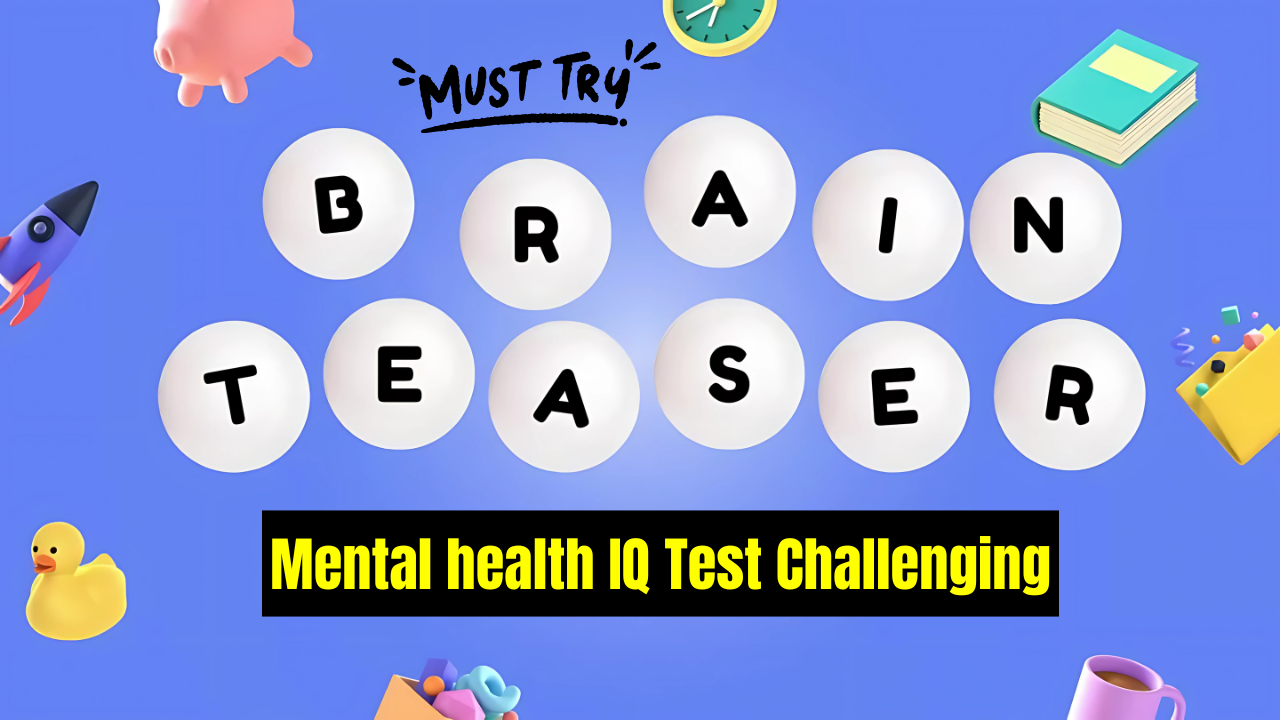Mental health professionals use various tools to understand how our minds work. IQ tests and logic puzzles serve as windows into our cognitive abilities and problem-solving skills.
These assessments help identify strengths and areas for improvement in our thinking patterns. They also provide valuable insights into how we process information and make decisions.
What Are Mental Health IQ Tests?
Mental health IQ tests combine traditional intelligence measurement with psychological wellness indicators. These specialized assessments evaluate both cognitive function and emotional intelligence.
Unlike standard IQ tests, these tools consider how mental health affects thinking abilities. They help professionals create better treatment plans for individuals seeking support.
The Science Behind Cognitive Assessment
Research shows that mental health and cognitive performance are closely connected. When we feel stressed or anxious, our problem-solving abilities can decline significantly.
Brain imaging studies reveal that emotional states directly impact areas responsible for logical thinking. This connection makes comprehensive assessment crucial for understanding overall mental wellness.
Types of Logic Puzzles Used in Assessment
Logic puzzles come in many forms, each targeting different aspects of cognitive function. Pattern recognition puzzles test our ability to identify relationships and sequences.
Spatial reasoning challenges evaluate how well we manipulate objects mentally. These skills are essential for everyday problem-solving and decision-making.
Pattern Recognition Challenges
Number sequences like 2, 4, 8, 16… test our ability to identify mathematical patterns. These puzzles reveal how quickly we recognize underlying rules and relationships.
Visual pattern puzzles use shapes and colors to challenge our perception skills. They help assess how well we process and interpret visual information.
Spatial Reasoning Puzzles
Three-dimensional puzzles require us to imagine objects from different angles. These challenges test our ability to mentally rotate and manipulate shapes.
Map reading exercises combine spatial skills with logical thinking. They evaluate how well we navigate complex information and make directional decisions.
Logical Deduction Problems
Classic logic puzzles present scenarios where we must determine facts from given clues. These problems test our ability to reason systematically and avoid assumptions.
Syllogism exercises challenge us to identify valid conclusions from premises. They reveal how well we apply logical rules to reach accurate conclusions.
Benefits of Regular Mental Exercise
Engaging with challenging puzzles provides numerous benefits for mental health and cognitive function. Regular brain training can improve memory, attention, and processing speed.
Studies suggest that puzzle-solving activities may help maintain cognitive abilities as we age. They also provide stress relief and boost confidence in problem-solving situations.
Improved Problem-Solving Skills
Working through complex puzzles enhances our ability to break down problems systematically. We learn to identify key information and ignore irrelevant details.
Strategic thinking develops through repeated exposure to challenging scenarios. This skill transfers to real-life situations where we need to make important decisions.
Enhanced Mental Flexibility
Logic puzzles require us to consider multiple approaches to the same problem. This practice increases our cognitive flexibility and adaptability.
When one solution doesn’t work, we learn to pivot quickly to alternative strategies. This skill proves valuable in both personal and professional contexts.
Stress Reduction and Mental Wellness
Focusing on puzzles can provide a healthy distraction from daily worries and concerns. This mindful engagement helps reduce anxiety and promote relaxation.
The satisfaction of solving challenging problems releases positive brain chemicals. These natural mood boosters contribute to overall mental wellness and emotional balance.
How Mental Health Affects Cognitive Performance
Depression, anxiety, and other mental health conditions can significantly impact cognitive abilities. Concentration difficulties are common symptoms that affect problem-solving performance.
Understanding this relationship helps professionals provide more accurate assessments and appropriate support. It also helps individuals recognize when mental health treatment might improve cognitive function.
Impact of Anxiety on Thinking
High anxiety levels can interfere with working memory and attention span. People may struggle to hold information in mind while solving complex problems.
Performance anxiety during testing can further impair cognitive abilities. This creates a cycle where worry about performance actually decreases problem-solving effectiveness.
Depression and Cognitive Function
Depression often involves cognitive symptoms like difficulty concentrating and making decisions. These changes can significantly affect performance on logic puzzles and IQ tests.
Processing speed may slow down, making it harder to work through problems efficiently. Recognition of these effects helps distinguish between cognitive ability and mental health symptoms.
Creating Effective Assessment Environments
The testing environment plays a crucial role in accurate cognitive assessment. Comfortable, quiet spaces help individuals perform at their best during evaluations.
Proper lighting, temperature control, and minimal distractions ensure that results reflect true abilities. These factors become especially important when assessing individuals with mental health concerns.
Reducing Test Anxiety
Clear instructions and practice examples help reduce anxiety about unknown tasks. Preparation time allows individuals to understand expectations before beginning formal assessment.
Encouraging breaks between challenging sections prevents mental fatigue from affecting results. This approach leads to more accurate measurement of cognitive abilities.
Cultural Considerations
Assessment tools must be appropriate for diverse backgrounds and experiences. Cultural bias in puzzles can lead to inaccurate conclusions about cognitive abilities.
Modern assessments include multiple versions designed for different cultural contexts. This ensures fair evaluation regardless of background or life experiences.
Interpreting Assessment Results
Understanding test results requires expertise in both psychology and statistics. Raw scores alone don’t provide complete pictures of cognitive abilities or mental health status.
Professional interpretation considers individual factors like education, culture, and current mental state. This comprehensive approach leads to more accurate conclusions about cognitive functioning.
Identifying Strengths and Weaknesses
Assessment results reveal patterns of cognitive strengths and areas needing improvement. Visual-spatial skills might be strong while verbal reasoning shows weakness.
This information helps create targeted interventions and support strategies. It also guides educational or therapeutic approaches tailored to individual needs.
Tracking Progress Over Time
Regular assessments can monitor changes in cognitive function and mental health. Improvement patterns help evaluate the effectiveness of treatments or interventions.
Declining scores might indicate developing mental health concerns that need attention. Early detection through cognitive assessment can lead to more effective treatment outcomes.
Practical Applications in Daily Life
The skills developed through logic puzzles and cognitive assessment extend beyond testing situations. Critical thinking abilities improve decision-making in personal and professional contexts.
Enhanced problem-solving skills help navigate life challenges more effectively. These benefits make cognitive training valuable for anyone seeking personal growth and development.
Professional Benefits
Many careers require strong analytical and problem-solving skills that cognitive training can enhance. Logical reasoning abilities are valued in fields like engineering, medicine, and business.
Improved cognitive flexibility helps adapt to changing workplace demands and technologies. These skills contribute to career advancement and professional success.
Personal Development
Regular mental exercise contributes to overall brain health and cognitive resilience. Lifelong learning through puzzle-solving keeps minds sharp and engaged.
The confidence gained from solving challenging problems translates to increased self-efficacy. This psychological benefit supports overall mental wellness and life satisfaction.
Future Directions in Cognitive Assessment
Technology continues to revolutionize how we assess and understand cognitive abilities. Digital platforms offer more engaging and precise measurement tools.
Virtual reality assessments may soon provide more realistic testing environments. These innovations could lead to better understanding of how cognitive abilities function in real-world situations.
Personalized Assessment Approaches
Future assessments may adapt in real-time to individual performance levels. AI-powered tools could provide more accurate and efficient cognitive evaluations.
Personalized feedback systems might offer immediate insights into cognitive strengths and areas for improvement. This technology could make assessment more accessible and useful for personal development.
Frequently Asked Questions
Q: How often should I take cognitive assessments? Annual assessments are sufficient for most people, unless specific concerns arise requiring more frequent monitoring.
Q: Can mental health medications affect test performance?
Yes, some medications may impact cognitive function, which should be considered when interpreting results.
Q: Are online IQ tests reliable for mental health assessment?
Professional, validated assessments administered by qualified practitioners provide more reliable results than online tests.
Q: How long do cognitive assessment sessions typically last?
Comprehensive assessments usually take 2-4 hours, depending on the specific tests administered.
Q: Can cognitive training actually improve IQ scores?
While training can improve specific skills, increases in overall IQ scores are typically modest and may not generalize broadly.
Q: What age is appropriate for cognitive assessment?
Assessments can be conducted at any age, with tools specifically designed for different developmental stages.
Q: Do cultural differences affect assessment accuracy?
Yes, which is why culturally appropriate assessment tools and professional interpretation are essential.
Q: Can stress temporarily lower cognitive test performance?
Acute stress can significantly impact performance, which professionals consider when interpreting results.

